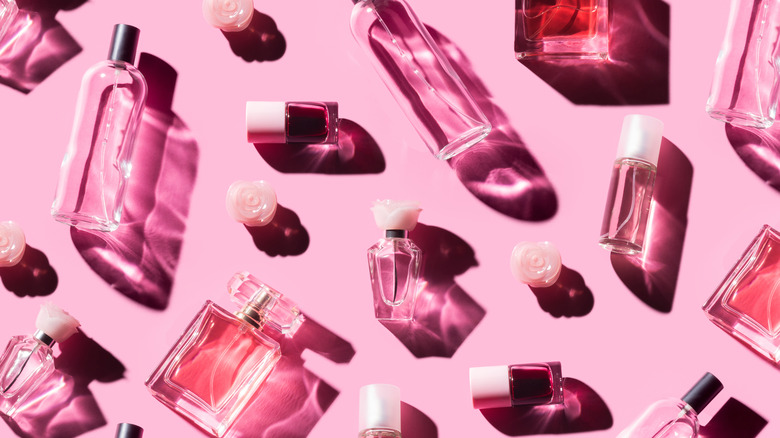Why You Shouldn't Wear Perfume Before Going To The Doctor
Perfumes, deodorants, and lotions are a part of our lifestyle. But while a whiff of rose or lavender may help brighten your mood, wearing products with fragrances can cause some serious unexpected downsides.
It is likely that you have sneezed or had a severe headache after sniffing a fragrance. It is because you might have inhaled undisclosed chemicals present in the perfume — many of which may not have undergone a safety test by the FDA (via Joyous Health). Besides potential toxins that cause headaches and irritation, perfumes may also contain a wide range of hormone-disrupting chemicals, so you are not alone if the scent makes you sick. A 2009 survey revealed that 30% of the U.S. population had perfume irritation. The survey added that around 19% of participants also faced health complications from air fresheners (via National Institutes of Health).
Yes, perfumes are appealing as well as notorious. Allergies and irritations aside, wearing a fragrance at a doctor's office or other healthcare facility can also cause more serious problems. Here's more on what could go wrong.
Why shouldn't you wear perfume to the doctor's appointment
So what's exactly with perfumes and avoiding them during a doctor's appointment? Turns out, fragrances with rich odor are likely to trigger allergic reactions, asthma attacks, and other respiratory reactions among patients, which can add even more complications to their health (via Time).
If you are planning to visit your gynecologist, you should also take care to leave out the perfume. Hormone-disrupting compounds in perfumes — such as phthalates — disrupt the natural cycle of hormones, including testosterone and estrogen. Dr. Patisaul tells Time, "There's evidence connecting phthalates to developmental disorders, especially among newborn boys." Indeed, research from the National Institute of Public Health in Poland has confirmed that phthalates can be damaging to male gametes — sperms — in fetuses and newborns. So generally, you may want to forego scent if you're pregnant, or will be in close contact with a pregnant person.
The same goes with laser procedures. Volatile compounds like perfumes can affect the laser beam by either blocking, absorbing, or reacting with the lasers' optics (via Healio). It might not be the best idea to replace perfumes with deodorants either. Deodorants not only leave residue on the skin that is difficult to remove — especially pre-surgery — but also interfere with mammograms. Deodorants containing aluminum can be dangerous, as aluminum appears similar to calcification on mammography, which could lead to false readings (via Partners For Your Health).


